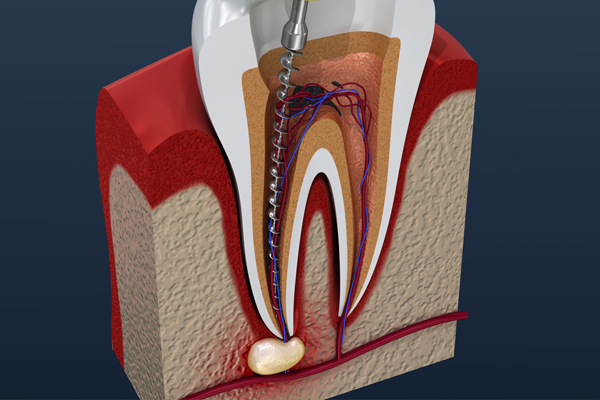What to Expect: Root Canal Treatment | Ardas Family Dental

“Root canal” is a term that strikes fear in the hearts of many patients. But modern technology has made this procedure easier and less painful! Let’s take a look at what you can expect if you find yourself needing a root canal.
What Is a Root Canal?
To start with, root canal treatment—often shortened to just “root canal”—is a procedure in which the pulp or root of a tooth is removed. This is meant to eliminate infection inside a tooth, so once the pulp is removed, the tooth is cleaned and disinfected and then filled and sealed.
Who Needs One?
As stated above, the root canal treatment is done to remove infection and prevent further infection on the inside of a tooth. But what happens to cause this infection in the first place?
Tooth decay is a common cause of infection. Bad decay can penetrate the enamel and dentin and infect the delicate pulp of the tooth. Luckily, tooth decay and subsequent infection can be prevented by practicing good oral hygiene.
Trauma is another common reason for needing a root canal treatment. Broken teeth can result in an exposed nerve, which is susceptible to infection. It’s important to to see your dentist as soon as possible if you experience any dental trauma.
What Happens During the Procedure?
The first step for having a root canal procedure is to go to your dentist! Your dentist will take an X-ray and determine your treatment needs.
When it’s time for the procedure, the dentist will first numb the area around the affected tooth. A rubber dam will be placed around the tooth at this time to keep the area dry.
Once the anesthesia has taken effect, the dentist will drill into the tooth. Then the pulp, along with the bacteria and decayed nerve tissue, is carefully removed from the tooth using special root canal files. The dentist will also periodically rinse the inside of the tooth during this time to keep it free of debris.
Once the pulp is cleared and the tooth is cleaned, the dentist will seal the tooth with a filling. In the event of a bad infection, the dentist may opt to provide temporary filling and medicine inside the tooth, and schedule a later appointment to permanently seal the tooth.
As with routine fillings for cavity, root canals and their fillings may cause some minor soreness. This can typically be treated with some over-the-counter pain medicine, but be sure to call the dentist in the unlikely event of persistent or severe pain.
Whether you need an emergency root canal treatment or a routine cleaning, we put patient comfort first at Ardas Family Dental. Visit our website to learn more about our services and request your next appointment!
